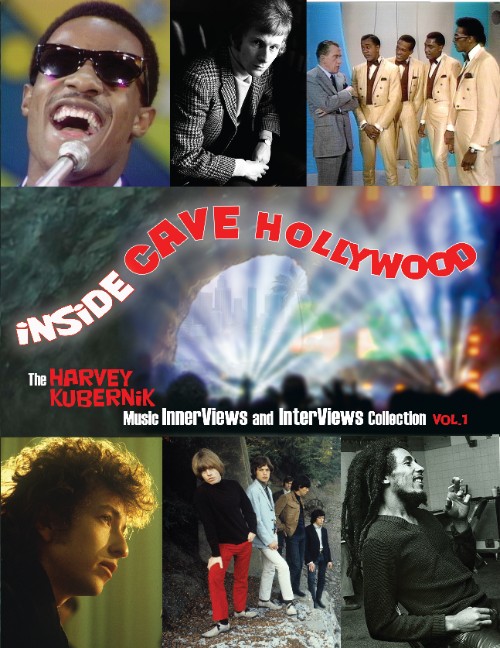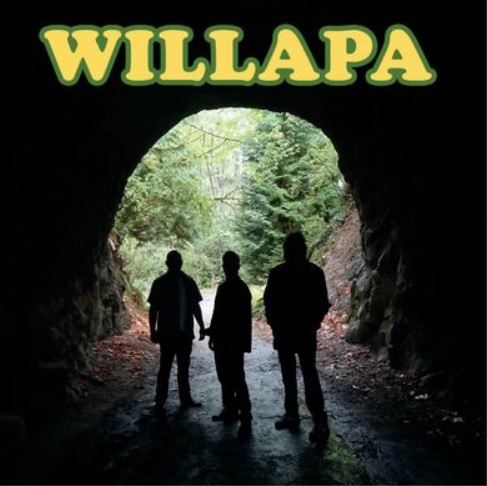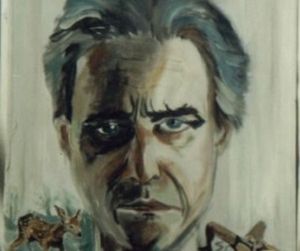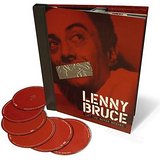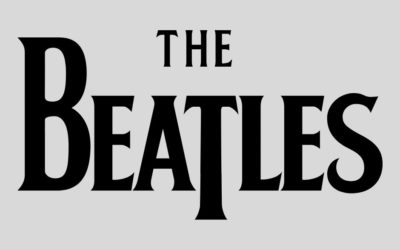Photos Courtesy Time Warner Group
On Sunday, February 5, 2012 I was the guest interview subject for two hours on the SiriusXM Grateful Dead Channel, “Tales from the Golden Road” satellite radio network program hosted by David Gans and David Lambert.
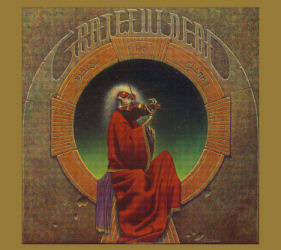 In 2012 renowned documentary filmmaker Malcolm Leo and veteran personal manager John Hartmann announced their plans to produce a feature film on Jerry Garcia with the full authorization and support of The Jerry Garcia Family, LLC.
In 2012 renowned documentary filmmaker Malcolm Leo and veteran personal manager John Hartmann announced their plans to produce a feature film on Jerry Garcia with the full authorization and support of The Jerry Garcia Family, LLC.
The agreement allows Leo and Hartmann to produce a documentary featuring a treasure trove of never before seen material on the life and music of Jerry Garcia.
Leo, whose documentary movie credits with Andrew Solt include, “This Is Elvis,” “Heroes of Rock & Roll,” “The Rolling Stones 25 X 5,” and his own “The Beach Boys – An American Band,” and “Crosby, Stills & Nash – Long Time Comin’” feature length docs will direct the ninety minute Garcia documentary.
Hartmann, the former manager of Eagles, Peter, Paul & Mary, Crosby, Stills & Nash and America, also promoted the first Los Angeles appearances of the Grateful Dead, in April of 1967.
I conducted a two- hour interview in 1976 with Garcia, Bill Graham and Carlos Santana at music promoter/producer Graham’s house in Mill Valley, Ca.
However, when I conducted this interview I was not a big Dead head, and had only seen them a handful of times in the early and mid- ‘70s. I enjoyed Jerry Garcia’s solo shows, especially a 1973 Ash Grove club date in Los Angeles.
I was just fascinated by Jerry Garcia. He was so accessible and interested in me. Who I dug, which books I had read, the kind of comics Icollected. I only had a few of their albums, and told him. I wasn’t a taper, and didn’t swap cassettes of their gigs. Jerry grooved on my honesty and periodically everyone around us would split, eat, move their wheels, but Garcia and I just jammed, akin to the way he plays music with his band or anyone in his orbit. I seem to recall we briefly talked about the Acid Tests in L.A. Watts area in summer, 1965, and he lit up when I complemented him on his pedal steel playing and earlier work on Jefferson Airplane’s “Surrealistic Pillow” LP. Did I know at the time I would eventually produce an album in the mid-1990’s on Jefferson Airplane’s Paul Kantner?
Did Jerry know that in the ‘90s he would one day provide some a liner notes I requested for a “Jack Kerouac Collection” box set I served as Project Coordinator on?
I really liked Bill Graham. Around his concert promotions and productions he was always hectic and frantic. But at his pad it was a mellow scene.
It originally was Graham and I, and then Garcia arrived, followed by Carlos, who also had to unwind with a game of tennis. Bill split for a while, to work the phone, what else is new, and basically Jerry and I just hung for an hour. We had chats on poetry, the beat scene, Kerouac and the 1969 Woodstock music festival.
Harvey Kubernik in San Francisco talks to the Grateful Dead’s Jerry Garcia, music promoter Bill Graham and Carlos Santana. 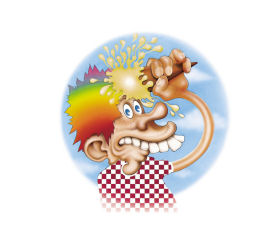
Q: Bill, can you remember your first meeting with Carlos and Jerry?
Bill Graham: I met Jerry in 1965. H was doing the acid tests. I thought he and his entire band were from another planet. I was very disturbed at those first parties because—and there’s a lot of differences in opinion—grown-ups as well as kids were testing their metabolism. I was producing theater in San Francisco at that time, where the group was still the Warlocks, doing benefits involving these groups. I got to know him later on.
Carlos was in 1967. I had the Fillmore in San Francisco, and (Paul) Butterfield was playing. My office was right above the marquee. There were windows over the marquee and you had to go through that door in my office on the second floor to change the lettering. Anyway, I’m sitting in my office in the middle of the night and head some noises outside my window. I went to the window to look outside and there are two guys who climbed up a rain pipe to get to the second level to get it. It was Carlos and Michael Carabello, who was a conga player friend of his. They were trying to get in to see Butterfield. He told me he was Mexican and liked Latin music, and my real joy in life is Latin music. We started talking and he said he had some musicians, and I said let me hear them—and that’s how we met. Besides, being a nice player, the thing I like the most about him. And respect the most, is that in the area of business, it’s not that he gives me carte blanche, but that he listens. The Bay area is a conglomeration of professional rejects from the rest of the world, actors, who couldn’t make it, dancers who couldn’t make it.
Graham: Before Woodstock, if you had a hit album, 700,000 or 800,000 units. Today an album will sell three million units and there won’t be any headlines. How can you retain the quality of the soup when you add water?
Garcia: I really think the scene out here created the possibility for Woodstock to happen. The Monterey International Pop festival. The thing, the activity, music and people. The set-up was out here.
Graham: The beauty of what Jerry is saying is that the Dead, Starship, Santana and others were very instrumental in something that they still retain. Knowing you can sell it, would you give it away? There were free shows put on that didn’t have to be free.
Q: In a business marked by one-hit wonders and trends, how do you account for your longevity?
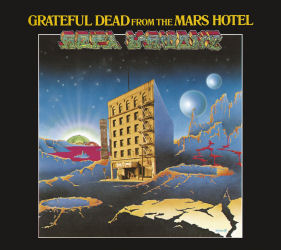 Garcia: We’re serious. One of the things you could say about all the bands that came from San Francisco at that period of time was that none of them were very much alike.
Garcia: We’re serious. One of the things you could say about all the bands that came from San Francisco at that period of time was that none of them were very much alike.
Graham: There was never a San Francisco sound, or a Boston sound. They may do the same thing to an audience though, which is giving them pleasure.
Garcia: I think each of us has dealt with it in various ways. Like, Carlos has developed himself into a spiritual being from a completely different kind of person. For me, I know what I’m supposed to do, and I’ll do what I’ll have to do to be able to play. I think almost all the people I’ve known around this area, involved around the music scene, have been faithful to that thing.
Graham: Jerry just hit a key. There is something that they’re always had in common from the beginning, something hardly spoken about in the media after all these years. The San Francisco bands, starting with the Dead, always went to the gigs with the intention of putting it out there. It was the lack of professionalism at the beginning that made that possible. It wasn’t that the contract said 45 minutes and “that’s what we’ve got to play,” They were the first one who asked to play longer. They wanted to extend the relationship between the audience and themselves. And that prevails to this day. You can’t get them to play shorter sets. Carlos always wanted to play longer which is very different from the professional attitude that you get.
Graham: One of the reasons for that-and Jerry won’t say it-is you get a man like this who can make all kinds of money across the country. The Grateful Dead just came off the road, and he has a desire to play, and he takes his band and plays a club that holds 400 people! When you go out, you want to make music and you want to make a living. There are times when I really think the Grateful dead are demented. Insane. They could have made ten times as much money.
Q: Do you feel parental about some groups or individuals you’ve got close to over the years, Bill?
Graham: Words are thrown around-brother, sister, parental. All I know some ten years ago they think I’m a very good businessman. I think I know how to deal with people, but not a very good businessman. I think I have some idea about music and what the streets are all about, and about what downtown is all about. I was a New York energy freak to some extent, and I still am. But I found out every mile didn’t have to be four minutes. I didn’t have to catch that plane. If you would have told me ten years ago that I would someday live under trees, I would tell you you’re crazy. I learned this from the Bay area, from the feeling in the Bay area. Jimi Hendrix once came late for a show. I’m pacing in front of the Fillmore, and he gets out of the cab, and I’m yelling at him, and he looked at me and said ‘there was this great movie on in the motel.’ Little by little, it took me four or five years to learn this. I finally realized that after the gig I could do the yelling. In the long run it’s the public that has to get the good energy from them. I really sincerely feel this, is that the reason the relationship lasted over the years, is that those of us who live in the Bay area and lasted over the years have always had the same goal. We want to turn people on and we want them to have a good time.
Q: All three of you were cultural heroes of the Bay area scene. Was there any added pressure being a mouthpiece for the community?
Garcia: Everybody knows who they are. No matter what you read about you in the paper, you know who you are. You don’t get any special breaks at the gas station. You can either be sucked in by that stuff, in which case it just eats you, or else just realize there’s a difference between what you read and who you are.
Q: Didn’t you ever feel you represented something special to the honest music community?
Garcia: I always did. I think that the world has changed. I think the United States has changed very visibly in the last ten years. A lot of it had to do with what happened in 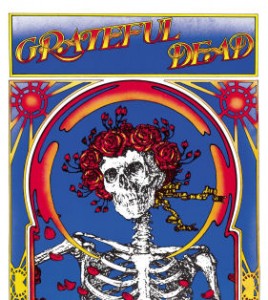 San Francisco. I can’t say how or why, but I also think it’s affected everything?
San Francisco. I can’t say how or why, but I also think it’s affected everything?
Q: Like how?
Garcia: Just all the interest in things like ecology. All the interest in the sense of personal freedom as expressed by all kinds of movements. All these things were designed to free the human. Social overtones. All that stuff. The communal spirit.
Graham: That’s the dilemma a musician has. A musician may think he played a shit set, and the audience out there is going crazy.
Q: Rock and roll has moved into the big arenas. Was that the logical extension from the Fillmore and even the ballroom circuit?
Graham: You can’t get any bigger, Man, has reached the largest securable facility. The reason Woodstock’s don’t work is that you can’t put up walls. You can put cement around a stadium. Okay, if you want a couple of hundred thousand people, there are no facilities that large except for cocker. It’s been proven that if you can put up a fence to contain 450,000 people, how do you stop the other 200,000?
Q: Could you predict the vastness of the present concert situation?
Graham: Yes, and I must be honest at the same time and cop to the fact that a lot of the things I was putting down predicting what would happen, did happen, and I joined the ranks. We may have created the ranks and everybody joined them. Basically, what it amounts to is supply and demand. The artist’s theory is that “my life is so busy now,” and he would like to be with the luxuries life has afforded him. If the Dead could spend one night in San Francisco playing a big gig instead of three smaller shows, the next two nights are theirs to be in their home or with their lady. That’s the key; it’s not that they want to play less. In the summer of 1973 or ’74, we took Crosby, Stills Nash and Young, who came to us and said, “we want to play a lot of indoors and outdoors dates,” We did a 31 city tour. Seventeen of those dates were in ballparks. That was the beginning. The logistics could work.
Q: Have you always liked playing live? You strike me as a workaholic.
Garcia: I like the live experience. That’s where it counts. That’s when music is real. It’s real in that situation. That’s the situation that I feel I have the greatest sense of personal responsibility about. I don’t mind putting out a bad record, but I really hate a bad concert. That really is depressing.
Q: You get into other musical avenues with solo projects away from the Grateful Dead. Has there ever been any conflict or compromise in doing a tune for the Dead or keeping it for future solo endeavors?
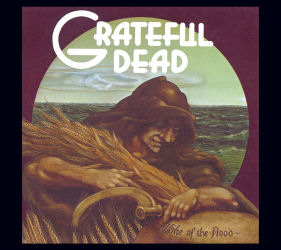 Garcia: It’s not judgmental. You can’t deal with it in a yes/no kind of fashion. For example, my band is a band that could best be described as consonance and harmony. Conceptually, everybody in the band thinks pretty similarity. In the Grateful dead it’s a situation in which almost no two people have the same conception musically; which makes it harder. Nobody gets their way. However, what we all respect about that situation is that there is a potential of a larger central viewpoint which none of us, individually, are capable of perceiving, but which we all add to because of the diversity and the conflict.
Garcia: It’s not judgmental. You can’t deal with it in a yes/no kind of fashion. For example, my band is a band that could best be described as consonance and harmony. Conceptually, everybody in the band thinks pretty similarity. In the Grateful dead it’s a situation in which almost no two people have the same conception musically; which makes it harder. Nobody gets their way. However, what we all respect about that situation is that there is a potential of a larger central viewpoint which none of us, individually, are capable of perceiving, but which we all add to because of the diversity and the conflict.
Q: Did you ever think ten years ago that the Grateful Dead would get beyond the ballroom circuit and that rock and roll would be presented in baseball stadiums?
Garcia: When the Acid Tests were happening, I personally felt “In three months from now the whole world will be involved in this.’ So, as far as I’m concerned, it’s been slow and disappointing. Why isn’t this paradise already? (laughs). My personal feeling has been one of waiting around.
Q: Being an elder statesman in the rock and roll world, how long do you feel you can continue the hectic pace, touring deadlines?
Garcia? I’ve learned that it requires a certain discipline for me personally. And I know I’ll approach it in a certain way. I’ll definitely burn out, and I wouldn’t survive a tour, for example. For me, it’s a matter of surviving. This is the set of givens. You’re gonna be in airports, motels, exposed to any number of strange drugs, strange experiences, intensity of this sort, and so forth. Within that framework how do you stay even? What you do is learn so it becomes a thing of pace, vitamin C, protein. You try and stay alive. That’s a fundamental problem. I’m just the sort of person who deals with things on that level. Once I know things what I have to cope with, it’s just a matter of adjustment. I just hate personal failure, being on stage and going through the changes and playing bad because I’m either not well, tired, too stoned, whatever. To me it’s an aversion therapy thing. It’s the reason I’ve been able to survive.
Q: All three of you were cultural heroes of the Bay area scene. Was there any added pressure being a mouthpiece for the community?
Garcia: Everybody knows who they are. No matter what you read about you in the paper, you know who you are. You don’t get any special breaks at the gas station. You can either be sucked in by that stuff, in which case it just eats you, or else just realize there’s a difference between what you read and who you are.
Q: Didn’t you ever feel you represented something special to the honest music community?
Garcia: I always did. I think that the world has changed. I think the United States has changed very visibly in the last ten years. A lot of it had to do with what happened in San Francisco. I can’t say how or why, but I also think it’s affected everything?
Q: Like how?
Garcia: Just all the interest in things like ecology. All the interest in the sense of personal freedom as expressed by all kinds of movements. All these things were designed to free the human. Social overtones. All that stuff. The communal spirit.
Q: Jerry, do you have high and low points that you best remember looking back over the last ten years?
Garcia: Well, I can get into that real easy. The worst for use and for me personally was Woodstock. The ultimate calamity. First of all, we were really stupid in the way we dealt with it. It was raining and we went on just after it got dark. There was maximum confusion going on, sound logistics. Really weird. Plus I was high, of course. And I went on stage in a state of confusion. Huge crowds of people over the stage. The stage had sheet metal and stuff on it, it’s wet, and I’m getting incredible shocks from my guitar. Pretty soon I started hallucinating ball of electricity rolling across the stage jumping off my guitar. Meanwhile, all the little citizen band radios and walkie talkies and things with the amplifiers so there’s weird voices coming out of the amplifiers. It’s dark, and you don’t see any audience, but you know there’s 400,000 people out there. Then somebody leans over across the stage, since everyone is ganged up, and says the stage is about to collapse. I’m standing there in the middle of this trying to play music. Then they turn on the lights, and the lights are a mile away. Monster super troopers. Totally blinding, and you can’t see anything at all. Here’s this energy and everything is horribly out of tune, ‘cause it’s all wet, damp and humid. It was just a disaster. It was humbling (laughs).
Q: Carlos, how do you feel appearing alongside a band like the Grateful Dead? Whose approach to spiritual matters, drugs and so forth is very different from yours now?
Santana: They’re different levels of spirituality. The Grateful Dead give a lot of joy and spirituality to a certain amount of People. They don’t care so much for the white clothes, the incense and candles or the philosophy from India. I love the levels of playing with bands, because more people become aware of it. Chances are the Grateful Dead audience and the Santa audience will merge together and both learn from each other. When we played recently in Anaheim with the Beach Boys and America, I think the first ten minutes there was a total clash between our music and their people. They take downers, Quaaludes, wine smoke. They’re so programmed to receiving a certain kind of loose music. Here we come out with this energy, pure energy, and it has to clash. It’s like living in a dark room for a long time and they put a flashlight in your eyes. It has to clash. For a while, the first 15 minutes is depressing. I’ve seen a lot of the people who leave the concerts, come in with their eyes red from just smoking a joint, and it’s good for them, but when they leave the concert they’re high with another kind of energy. Their eyes are clear because this energy is like water.
Q: Are you tough with the members of the band about how they conduct their lifestyles.
Santana: No. If you want something you don’t have to scream for it, all you have to do is long for it, like a baby crying for food. Someone comes to feed you. That’s how the musicians came to the band. They come to the band because they identify with the same thing that I need.
Q: Do you think drug use harmed the original line-up?
Santana: I don’t think drugs, or, money power or lust power for women did it. I think what did it was lack of discipline, because all those things are steps. I’m not saying they are bad or good steps. You take them as they cine, to get to a higher place. What destroyed the other band was the main thing that destroyed the Beatles, lack of direction. lack of having a goal, lack of that conviction. You all say, ‘man, we’re gonna be the best. Set up a target/’ And all you do is concentrate on it and get it. Once you hit that target, you have to get another target. That’s what mainly happened to the other band. People started over-indulging on everything.
Q: You are now financially secure. Has the sudden money ever been jolting? Coming from the barrio you must have been poor.
Santana: I remember poor adobe houses. I can’t remember ever being sad. I don’t think anyone denied me anything for too many years. I have always been in places and circumstances where people offered me a kit if things. Even in Tijuana, people offered me to play lead guitar rather than bass because they felt I had a feel for the guitar. The main thing is that I am grateful because out of a lot of people, I’m chosen to carry on a certain way of life, a certain way of manifesting music. A lot of people give me attention.
Fortunately, I have Bill Graham at my side. He’s like an older brother. I put Bill Graham and Mahavishnu in the same place, they both are older brothers. But I don’t necessarily have to go through this way. You can find a short
The thing about concerts and musicians is, when you’re onstage you receive a lot of energy. A lot of times the energy is of gratitude, saying thank you for coming to our town and really doing it to me. Sometimes you find people who are harboring jealously or some kind of thing toward you, because maybe they’re seeing how much their ol’ ladies are captivated by your soul music. And they throw these things at you. I’ve seen musicians get so callous; when you receive a vibration you begin to get layers. You begin to be very insensitive. That’s the worst thing that can happen to a musician. The solution for some of the concerts is to clean ourselves. I found for me it is to walk in the woods or on the beach meditating by myself. You throw away all the impurities the people throw at you.


